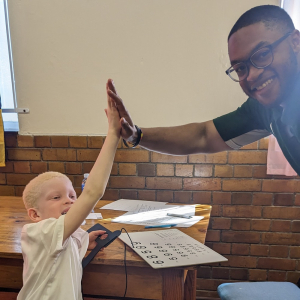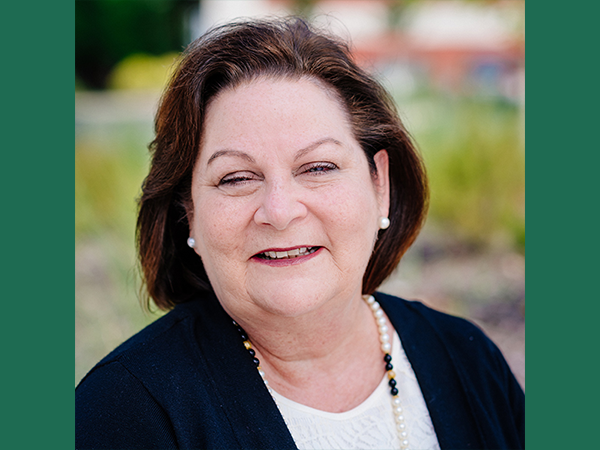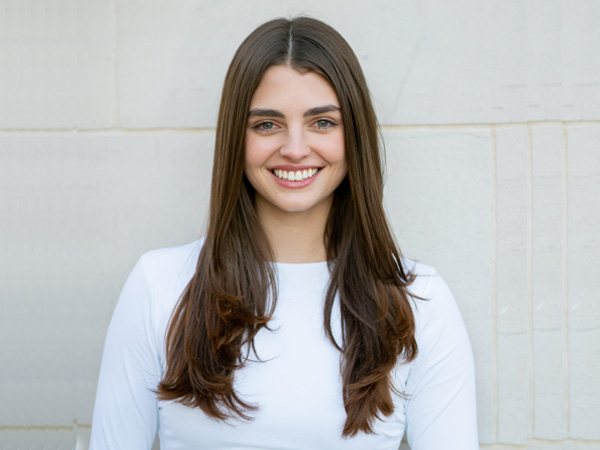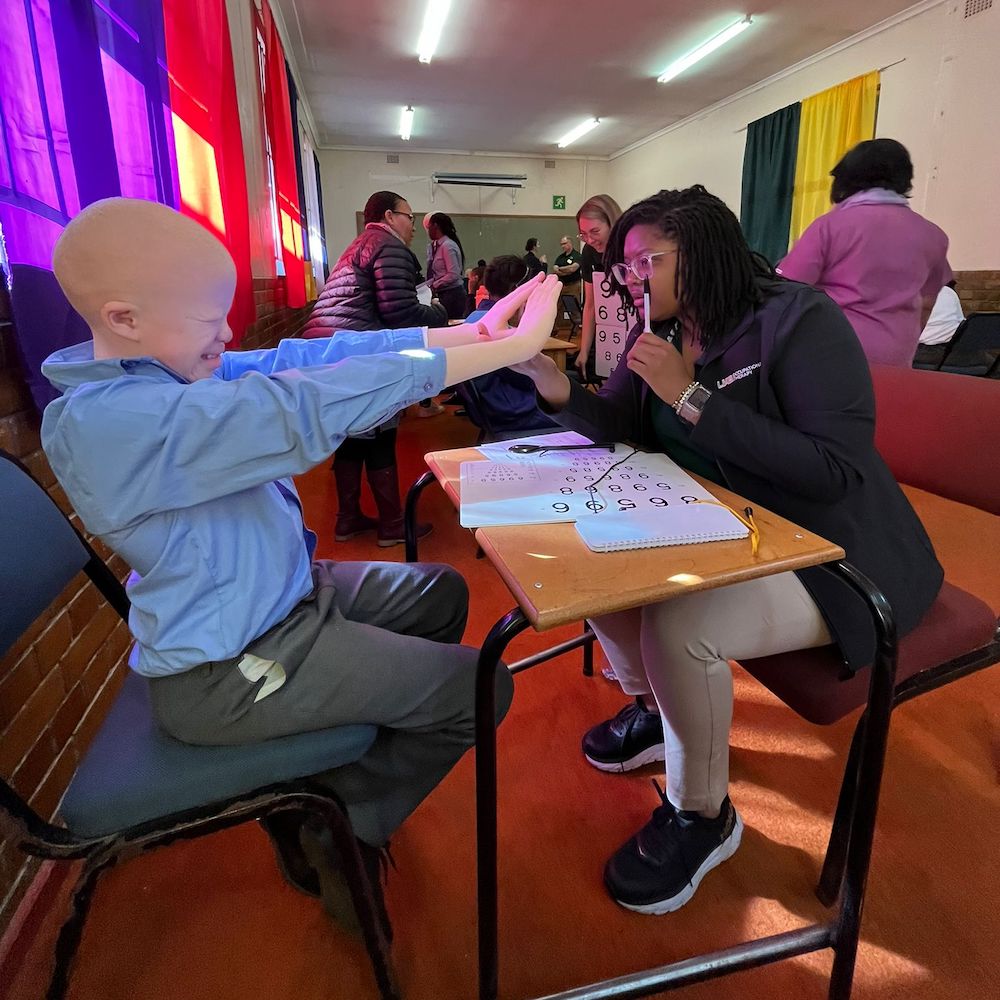 The Department of Occupational Therapy’s first education abroad group spent two transformative weeks in South Africa last spring that included a low vision screening for students at the Athlone School for the Blind. All students who attend this public school on the outskirts of Cape Town have visual deficits, and some have multiple disabilities, including cognitive impairments.
The Department of Occupational Therapy’s first education abroad group spent two transformative weeks in South Africa last spring that included a low vision screening for students at the Athlone School for the Blind. All students who attend this public school on the outskirts of Cape Town have visual deficits, and some have multiple disabilities, including cognitive impairments.
During this service-learning project, each of the 22 entry-level clinical doctorate in occupational therapy (OTD) students was assigned to assess the vision of four children. The students had to negotiate language and cultural differences and adapt tests to accommodate each child’s vision level and other impairments, said Beth Barstow, PhD, OTR/L, SCLV, FAOTA, director of the UAB Low Vision Rehabilitation Graduate Certificate program.
She collaborated with Vania Benjamin, the occupational therapist for the 300-plus students at the South African school, to organize the screening. The school lacks the resources for regular visual assessments of its students, many of whom come from racial groups who were marginalized during the apartheid era and who continue to experience far-reaching health and economic disparities.
“The overall goal of the education abroad trip was to compare the history of South Africa and Birmingham, AL, which have similar histories of racial discrimination, and view those comparisons through the lens of existing health disparities,” said Barstow, associate professor of occupational therapy.
Seeing the real-life effects of a health care system in which individuals receive different levels of care based on their ability to pay was an important learning experience for the UAB students, said Barstow. She noted that these inequalities are also extremely common in the United States, but many of UAB’s OTD students may not have experienced them firsthand.
“Our students do low vision screening in the Birmingham community as part of their education, but they usually work with people from socioeconomic backgrounds and with health care access that are similar to their own,” Barstow said. “They quickly saw the value of working with a population who really needed these services, as well as the far-reaching consequences of an unequal health insurance system.”
Students challenged to adapt quickly to individual needs and cultural differences
The OTD students tested observation of function, intermediate visual acuity, and contrast sensitivity function of the Athlone learners, who ranged in age from 6 to 18 years, and used non-language-based screening for children with speech deficits. UAB faculty circulated, overseeing the screening sessions and suggesting solutions for unexpected issues.
“We made sure our students kept screenings moving along quickly because that’s the reality of healthcare—you don’t have much time to sit and contemplate an adaptation or cultural difference,” Barstow said.
The UAB students found the experience challenging but rewarding. Several called it a once-in-a-lifetime experience.
“I was proud of our students, who also stepped into roles of educating community members [from local low vision organizations] about what they were doing, why they were doing it, and the tools they were using,” Barstow said.
The Athlone students also enjoyed the day, Benjamin said. “It was very encouraging to see our learners engaging and communicating with other professionals,” she wrote in an email interview. “This was indeed a very productive day as more than 80 learners were screened within a 2-hour period, and networking occurred on the local, national, and international level.”
UAB’s Department of Occupational Therapy hopes to continue to make a difference at the school and grow South African connections by donating visual acuity and contrast tests and ongoing educational support to the school and another local low vision organization.
Athlone school aims to give each student confidence, independence, and a productive future
Although the Athlone School for the Blind doesn’t have funding for the most up-to-date visual tests and other resources, it gives its students a high-quality education in an inclusive and welcoming environment. Students are placed in classrooms with teachers trained to work with children with vision deficits and with peers whose visual impairments are similar to their own. Classes are small, with only six to 10 students each.
A multidisciplinary rehabilitation team, which includes a psychologist, counselor, physical therapist, orientation and mobility specialist, and an RN, provides students with specialized care and training. In her role as an occupational therapist, Benjamin works with students to maximize their remaining vision and help them learn nonvisual methods for completing daily activities.
“I also help our learners achieve their maximum level of independence so they can access the school curriculum to his/her full potential and assist them with the transition into adult life with vocational preparation and community living skills,” she wrote.
The school’s ultimate aim, noted Benjamin, is to “ensure that each child develops into an independent and fulfilled adult with a sense of self-worth and confidence who can take up his/her rightful place in society.”
Photo Gallery
UAB donated Lea screening charts to the Athlone School for the Blind. These screening tools are designed to assess visual functions for those with vision impairment.
Typical eye charts such as the Snellen are designed to assess vision at near-normal ranges. Use of the Lea charts will help the Athlone school therapists screen children and obtain information that can guide school and therapy activities.
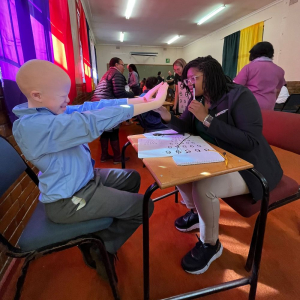
Eye dominance testing
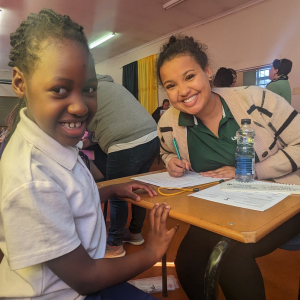
Interview with an Athlone student
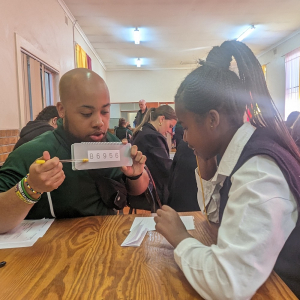
Lea contrast sensitivity function screen
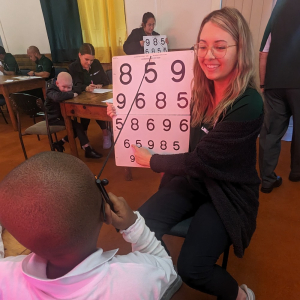
Lea intermediate acuity screen
